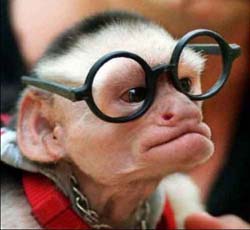"There was once a wild dove; in the grim forest, there where wonder also dwells with terror among the straight, solitary trunks, it had its nest. But near by, where the smoke arose from the farmer's chimney, there dwelt some of its more distant relations, some tame doves. It frequently met with a pair of these; that is, it sat on a branch overhanging the farmer's yard; the two tame doves sat on the ridge of the roof; however, the distance between them was not so great but that they could exchange thoughts with each other in conversation.
One day they talked about the chances of the times and about the necessities of life. The wild dove said: "so far I have had my living; I let each day have its own worry and in that way I get through the world" The tame doves had listened carefully...Thereupon one answered: "Now we support ourselves differently; with us, that is to say, with the rich farmer with whom we live, one has his future assured. When harvest time comes, then one of us, I or my mate, sits up on the roof and watches. Then the farmer drives one load of grain after another into the barn, and when he has driven so many in that I can no longer keep count, then I know that there are supplies enough for a long time, I know it from experience..."
The wild dove went home and thought the matter over more closely; it occurred to it at once that it must be very gratifying thus to know that one's subsistence was assured for a long time, while, on the contrary, it was indeed wretched to live thus constantly in uncertainty, so one never dares to say that one knows that one is provided for...
Next morning it awakened earlier than usual, and was now so busy gathering together, that it scarcely got time to eat or to eat its fill. But it was as if there were a fate overhanging it, that it should not be permitted to accumulate wealth, for every time it had a small supply collected and hidden in one or another of the supposedly safe places- when it came to inspect them later, the supply was gone. However, no essential change took place with respect to its living; it found its food every day as before, and in so far as it took a little more sparingly for itself, that was because it wished to accumulate and because it gave itself no time to eat, for otherwise it would have had its living as bounteously as before. Alas, and yet a great change was taking place in it; it was far from suffering actual need, but it had conceived a future need; its peace of mind was lost- it had acquired anxiety for the necessities of life.
From now on the wild dove became concerned, its feathers lost their sheen, its flight its ease;...it was no longer happy;...it found its food each day, was filled, and yet it was as if it were not filled, because in its care for the necessities of life it would go hungry for a long time...
At last it devised a cunning plan. One day it flew over and sat on the ridge of the farmer's roof between the tame doves. When it noticed that there was a place where these flew in, it also flew in, for the storeroom must certainly be there. But when the farmer came in the evening and locked the dove-cote, he at once discovered the strange dove. This he then put in a little box by itself until the next day, when it was killed- and freed from anxiety for the necessities of life.
Had the wild dove been content to be what it was- a bird of the air, then it would have had its living, then would the Heavenly Father have fed it, then in the event of uncertainty, it would have been where it belonged, there where the straight, solitary sombre trunks are in good understanding with the cooing trill of the wild dove; then it would have been the one of which the preacher spoke on Sunday, when he repeated the Gospel words: "Behold the fowls of the air, which neither sow nor reap, nor gather into barns, yet our Heavenly Father feeds them..."
It is certainly laudable and pleasing to God that a man sows and harvests and gathers into barns, that he works to find food; but if he is willing to forget God and to believe that he supports himself with his labor, then he becomes uneasy about his livelihood. The richest man who ever lived, if he forgets God, and believes that he supports himself by his labor, has financial anxieties...
To be dependent on our own wealth, that is dependence and heavy bondage; to be dependent on God, absolutely dependent, that is independence. The worried wild dove foolishly feared to remain absolutely dependent on God, therefore it ceased to be independent and to be the symbol of independence; ceased to be the poor bird of the air, which is absolutely dependent on God. Dependence on God is the only independence, for God has no heaviness; only the earthly and especially the earthly treasure has that."
